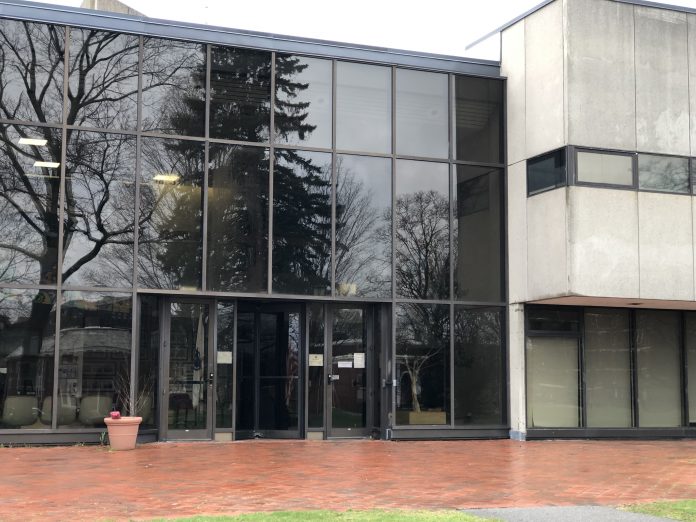By Geena Monahan—For the North Star Reporter
As part of a statewide settlement to Massachusetts’ municipalities impacted by the opioid crisis, North Attleborough is receiving $2.4 million dollars, and town officials want residents’ input.
Over $700,000 has been awarded to the town thus far, with an additional $1.7 million to be distributed over the next 14 years. The funds come from opioid distributors and pharmacies that have directly or indirectly contributed to the opioid epidemic, and can be used to support prevention, harm reduction, treatment and recovery programs.
Stephen Berdos, human service coordinator for North Attleborough, came in front of Town Council on Monday, April 28, to give an overview of the feedback he’s received so far and the vision he has for where these funds should be directed. Part of the requirement for using the funds is that feedback from residents must be taken into consideration, and a survey was made available for residents through May 2.
“So far, we’ve received 234 completions of the survey, which is great considering it has been open for just about two and half weeks,” said Berdos. “Of those participants, 35% said they are directly affected by the opioid crisis — either they’ve struggled for a family member or friend has.”
Berdos presented some of the ideas from residents, which included using funds for sober home grants, access to mental health counseling for people who need treatment, and financial assistance for families affected by the opioid crisis. According to Berdos, residents reported that the biggest challenges opioid addicts face are stigma, recovery housing and mental health treatment.
The town’s Opioid Task Force, consisting of the town manager, police chief, fire chief and staff from the school and health departments, meets monthly to discuss how to best make use of the settlement funds. Berdos has served on it since October 2024, and said the task force has been “very receptive” to the ideas he’s brought forth and the town’s overall response has been supportive.
“The Opioid Task Force has evaluated what surrounding communities have done with their opioid settlement funds and how they’ve prioritized their spending,” said Berdos. “That research has led the Opioid Task Force to develop a new position for the town, a co-response mental health clinician.”
According to Berdos, this position would be very similar to that of a social worker, and would be part of the Police Department. Members of the council asked Berdos how the position would be funded, and he said it would be paid for through the opioid settlement funds, and the position would end once that money runs out.
In an interview with the North Star Reporter, Berdos elaborated on what a mental health clinician would bring to the town, basing some of his ideas off a meeting he had with a social worker in Attleboro who was also hired with opioid settlement funds from the city.
The job will consist of proactive work in the community, along with working in schools, riding along with police officers on calls involving opioid use or mental health crisis, and following up with after-care after a person is discharged from the hospital following an overdose.
“People deal with substance use disorder and enter that realm at different points,” said Berdos. “There are people that are just starting out with their struggle, there are people that are actively using substances, and people that are in recovery. I think it’s important to put funding into all three of those areas.”
Berdos shared that he has personally been affected by the opioid epidemic through a family member who struggled with addiction, something that has given him firsthand knowledge of the hardships it can bring. Providing financial relief for families is something he is passionate about, and he spoke with two parents in town whose children died as a result of their addiction and strained to pay for the funeral.
“On top of the emotional trauma tied to that, there’s the financial burden of having to pay for funeral expenses that are very expensive and unplanned for,” said Berdos. “One thing Boston did is they made those funds available for funeral expenses, so if this program is approved, that will be one of the uses of that funding.”
Berdos is also pushing for Narcan trainings to be run through the town, which the mental health clinician would assist with. Currently, the town does not provide public trainings on how to administer Narcan, something Berdos wants to change and has received support for from the community.
“I’m advocating for the town to use opioid funding dollars to pay the SAFE coalition to run narcan trainings in town,” he said. “A lot of school staff, library and town hall staff have asked for it, as well as parents in the school system. There’s enough need where we could run two or three sessions.”
In terms of sober homes in town, Berdos feels strongly that not only does more need to be available, but the ones in operation need funds to improve programming as well as the physical structure — such as installation of sprinkler systems — to make them safe. Berdos said that in his research he has also found that there are sober homes in town that are not certified through the Massachusetts Alliance for Sober Housing.
Residents are encouraged to visit the Opioid Task Force’s page on the Town of North Attleborough’s website to stay updated on the funds received and access a list of resources for residents who may be struggling with addiction.
“We need to recognize that this is not enough money, but it’s all we’re going to get,” said Berdos. “So, you want to be thoughtful about how you’re spending it, but also recognize that people are dying. It’s an active crisis.”

